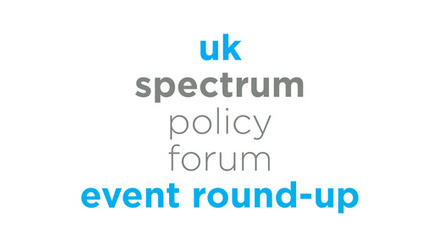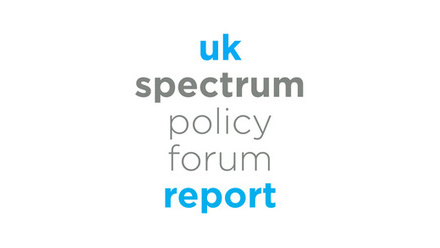UK SPF Event Round-up: July Plenary 2025
The UK SPF was thrilled to host the third Plenary in 2025 last week, bringing together a vibrant cross-section of the UK’s spectrum and telecoms ecosystem. The event came at a pivotal time, aligning with the Government’s consultation on the Statement of Strategic Priorities, which is open for comment until 18 September. This is the first such statement since 2019 and a vital opportunity to shape the UK’s future approach to spectrum—one that enables growth, innovation, and resilience.
At the heart of the consultation is a clear ambition: to unlock economic growth through smarter, more dynamic spectrum use. The UK SPF, as the industry’s voice and a trusted sounding board to Government and Ofcom, is committed to supporting this ambition. We aim to amplify the sector’s voice, promote innovation, and help shape a regulatory environment that supports evolving wireless needs across the UK.
The consultation outlines a number of strategic priorities, including ensuring spectrum availability for emergency services, utilities, transport, and space; supporting Programme Making and Special Events (PMSE); and shaping international frameworks. It also highlights the importance of shared access frameworks and efficient spectrum allocation.
Enabling Growth Through Spectrum
Multiple Government publications have underscored the need for greater innovation in spectrum. Part of the wider Industrial Strategy, the Digital and Technologies Sector Plan calls for more experimentation, better data, and smarter regulation. This would enable more responsive, data-driven regulation and support the UK’s ambition to become a global leader in spectrum policy and innovation.
The UK’s Advanced Connectivity Technologies (ACT) programme is central to this vision. With over £240 million committed to a four-year research programme, ACT is designed to bridge academia and industry, accelerate commercialisation, and build a world-class capability in future telecoms. The Future Telecoms Hubs (FTH) are a cornerstone of this effort, with initiatives like JOINER—a national spectrum facility—providing the infrastructure needed for credible, scalable experimentation.
One of the key challenges is scale—testing spectrum models across diverse geographies and user types, and generating open datasets that reflect real-world activity. The vision is to create a system that combines monitoring data with assignment records to simulate future environments, test interference scenarios, and automate spectrum management.
JOINER connects 14 research labs across the UK (and beyond), offering a federated, end-to-end environment for testing new network technologies. With dark fibre links, optical access experimentation, and a powerful orchestration platform, JOINER enables multi-tenant, real-time testing of network functions and spectrum use. It’s a critical step toward building a spectrum digital twin—an environment where future interference scenarios can be emulated and tested at scale.
Building the foundation of the current ambitions, the UK Telecoms Innovation Network (UKTIN) has convened nine expert working groups, each tackling a different aspect of the UK’s telecoms future. While spectrum is not the focus of a dedicated group—thanks to the ongoing work of UK SPF and others—it remains a cross-cutting theme throughout.
Global Standards and the Road to 6G
International collaboration remains a key priority. The UK is actively engaged in shaping global standards through bodies like the ITU-R and 3GPP. The path to 6G is already underway, with Working Party 5D evaluating IMT-2030 requirements and candidate bands in the 4 GHz, 7/8 GHz, and 14/15 GHz ranges. These studies are considering how to balance new IMT deployments with incumbent services, including fixed wireless access and satellite systems.
The evolution of IMT—from its origins in IMT-2000 to today’s 3GPP-led ecosystem—has expanded beyond traditional telecoms to include verticals like intelligent transport systems and drones. The next generation will need to address new requirements around sustainability, sensing, and resilience. However, interoperability—especially between terrestrial and non-terrestrial systems—remains a challenge, with separate proposals expected for each domain.
The UK’s role in these discussions is critical. Through ACT and the FTH, we are not only contributing to standards development but also ensuring that UK researchers understand the importance of intellectual property, standards engagement, and industrial impact.
Looking Ahead
The UK SPF remains committed to supporting Government and Ofcom in delivering a spectrum strategy that is forward-looking, inclusive, and internationally aligned. We encourage all stakeholders to engage with the consultation and help shape the future of spectrum in the UK.
Together, we can ensure that spectrum continues to be a catalyst for innovation, resilience, and economic growth.
Slides
Contact us

Tales Gaspar
Tales has a background in law and economics, with previous experience in the regulation of new technologies and infrastructure.

Sophie Greaves
Sophie Greaves is Associate Director for Digital Infrastructure at techUK, overseeing the Telecoms Programme, the Data Centres Programme, and the UK Spectrum Policy Forum.





